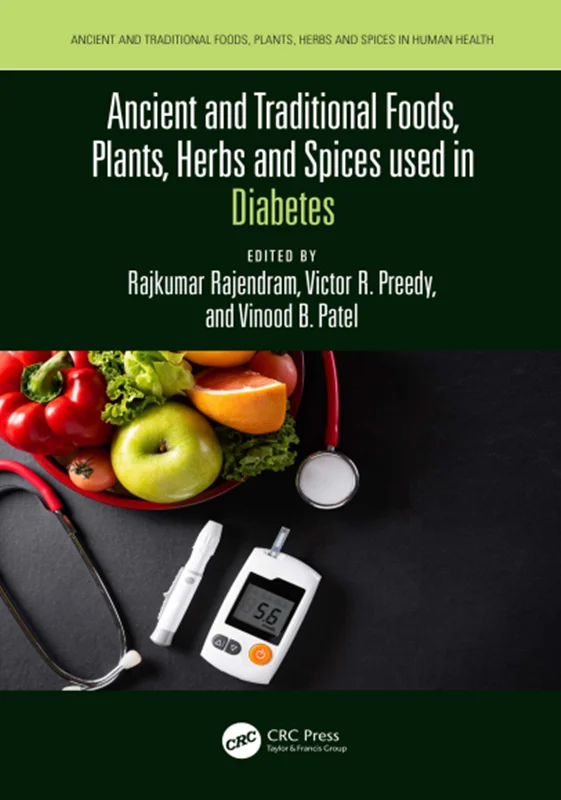Ancient and Traditional Foods, Plants, Herbs and Spices used in Diabetes
(Ancient and Traditional Foods, Plants, Herbs and Spices in Human Health), Rajkumar Rajendram, Victor R. Preedy, Vinood B. Patel, 1032108592, 1000902595, 9781032108599, 9781000902594, 978-1032108599, 978-1000902594, B0CDYY7PHY
English | 2024 | Original PDF l 13 MB l 400 Pages
The use of different foods, herbs, and spices to treat or prevent disease has been recorded for thousands of years. Egyptian papyrus, hieroglyphics and ancient texts from the Middle East have described the cultivation and preparations of herbs and botanicals to “cure the sick.” There are even older records from China and India. Some ancient scripts describe the use of medicinal plants which have never been seen within European cultures. Indeed, all ancient civilizations have pictorial records of different foods, herbs, and spices being used for medical purposes. However, there are fundamental issues pertaining to the scientific evidence for the use of these agents or their extracts in modern medicine. These issues are explored in Ancient and Traditional Foods, Plants, Herbs and Spices Used in Diabetes.
Features
· Investigates alternative healthcare paradigms that use traditional dietary foods, plant-derived materials, and extracts to treat diabetes
· Describes scientific studies using modern day biomedical techniques
· Provides information on diets, specific agents, extracts and resources.
· Many chapters focus on plant-derived material, providing a historical background, uses, toxicity, and cautionary notes and summary points.
There have been considerable advances in scientific techniques over the last few decades. These have been used to examine the composition and applications of traditional cures. Modern science has also seen the investigation of herbs, spices and botanicals beyond their traditional usage. Diabetes is one of the most common diseases worldwide, with over 400 million people with the illness. With chapter contributions by an international panel of contributors, this book is useful for researchers in the area of functional foods. Diabetologists, nutritionists, endocrinologists, healthcare workers, and pharmacologists will also find this book extremely valuable.

